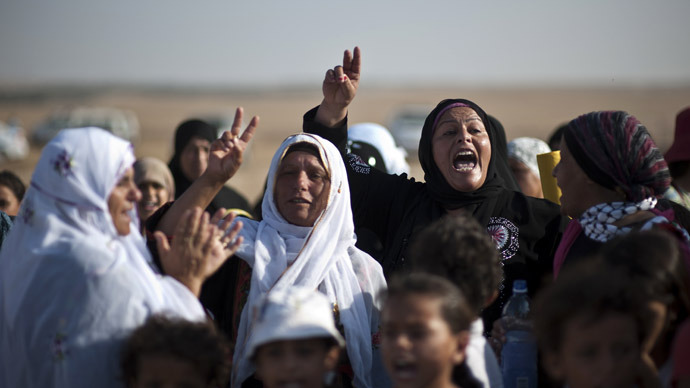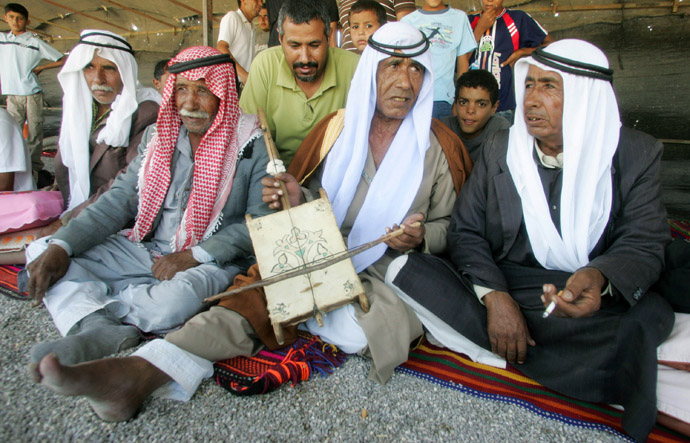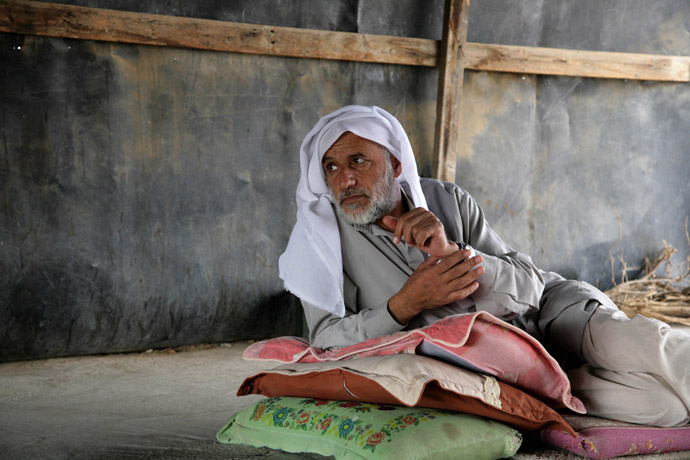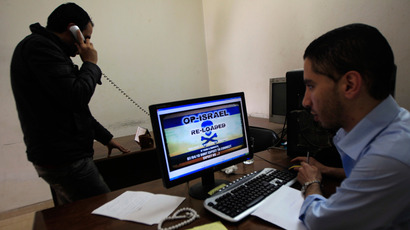Land grab: Israeli govt backs bill to forcibly relocate up to 40,000 Bedouin villagers

Israeli Cabinet ministers are backing a draft law to demolish Bedouin villages in the country's Negev Desert and relocate residents to state-approved settlements. If adopted, the country's latest ethnic cleansing project will affect tens of thousands.
Bedouin leaders have harshly criticized the plan, saying they
were not included in discussions of the bill.
Under the Prawer-Begin plan, or 'The Bill on the Arrangement of
Bedouin Houses in the Negev,' the Bedouin population will be
relocated to officially recognized Bedouin towns such as Rahat,
Khura and Ksayfe, and their current homes will be
demolished.
"The government approved a plan that will cause the displacement and forced eviction of dozens of villages and tens of thousands of Bedouin residents," Rawia Aburabia, a lawyer from the Association for Civil Rights in Israel (ACRI), told MAAN news agency. "All of this while the government simultaneously promotes the establishment of new Jewish communities, some of which are even planned to be built on the fresh ruins of Bedouin villages."

The Israeli government promised that those relocated will be
given financial compensation and be allotted new plots of
land.
“The goal of this historic decision is to put an end to the spread of illegal building by Negev Bedouin and lead to the better integration of the Bedouin into Israeli society,” Israeli Prime Minister Benjamin Netanyahu said in a statement.
The bill is expected to soon begin the legislative process in the Knesset. According to ACRI, the Prawer-Begin plan envisions the eviction of around 30 to 40,000 Bedouins, which will destroy their communal and social lifestyle and condemn them to poverty and unemployment.

Bedouins have argued they purchased their land in the Negev before the establishment of the state of Israel. The agreements, however, are said to have been verbal, and never registered in Israel’s official Land Registry. Israeli law does not recognize land claims that are not backed by some form of written proof of purchase or ownership.
"This is a step that harms the basic rights of the Bedouin. Instead of the state contributing to the Bedouin population, it is acting against it," Haaretz quoted Rahat Mayor Sheikh Faiz Abu Seheban as saying. "I call on all human rights organizations to oppose the decision, since it damages the social framework in the Negev."
Israel refuses to recognize 35 Bedouin villages in the Negev, which collectively house approximately 90,000 people – nearly half of Israel's 210,000 Bedouins, according to data published by Bedouin-Jewish Justice in Israel. The villages are not on official maps and lack basic services like water, paved roads and electricity.

The other half of Israel’s Negev Bedouins lives in government-planned townships. Residents have complained over a lack of basic infrastructure, transportation, school and health facilities. Israel’s Bedouin townships repeatedly rank in the country’s lowest socioeconomic bracket.
The Regional Council of Unrecognized Arab Villages of Negev along with the High Steering Committee of the Arabs of Negev organized a demonstration near Netanyahu’s office in Jerusalem on Monday, where they protested the bill.
"The plan will under no circumstances be carried out; the Bedouin population will not give up its land," Hussein Al-Rafia, the former head of the regional council of unrecognized Bedouin communities told Haaretz. "I think the state needs to sit with the Bedouin population and solve the problem once and for all. They have not sat with us seriously."
Knesset member Ibrahim Sarsour addressed the demonstrators, saying that his party, the United Arab List, had rejected the bill. He expressed concern that the recommendations could be approved as a law, and urged the Arab public to use legal methods to prevent its implementation.














